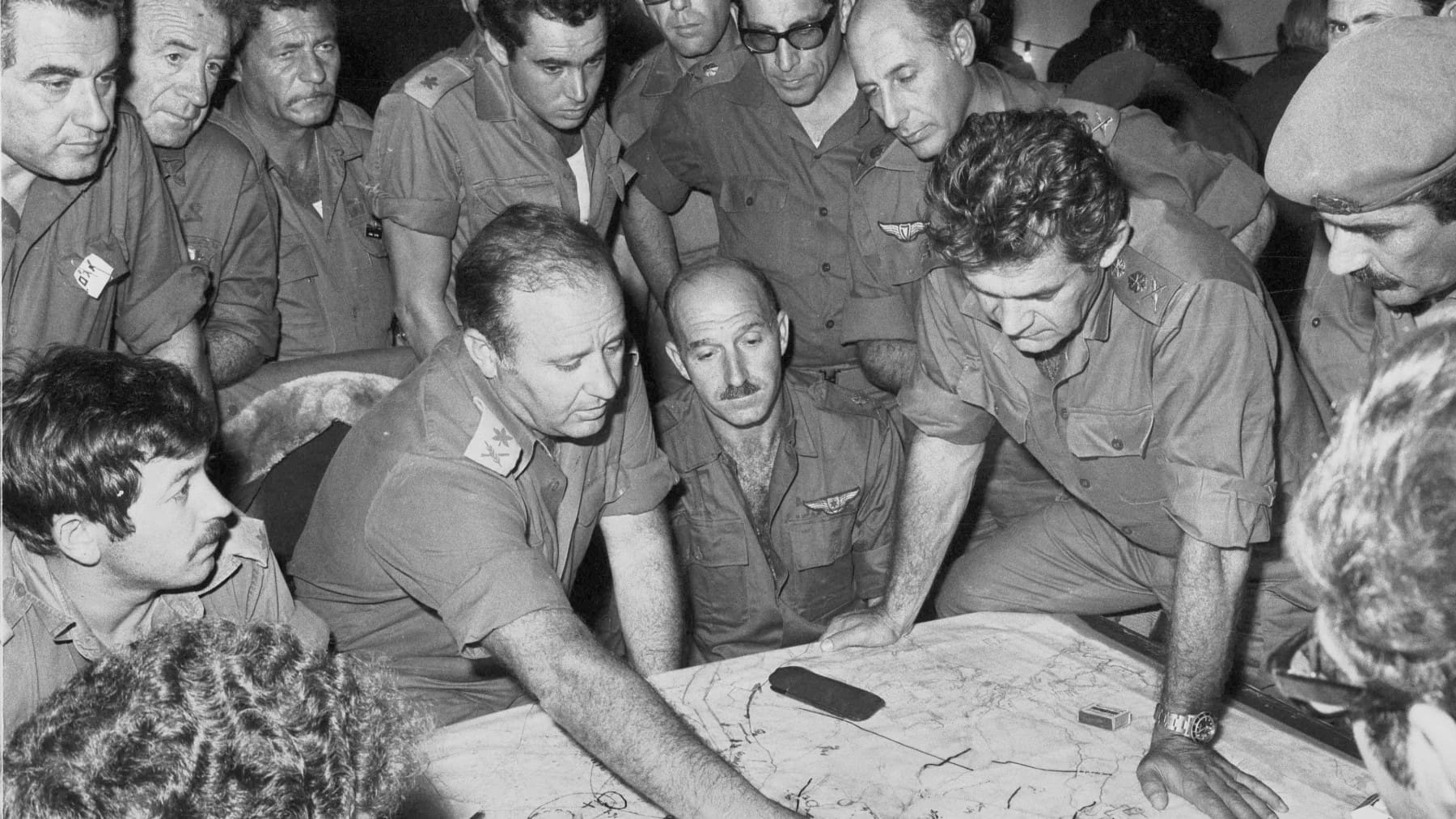As several times before in its history, Israel faces a dilemma: it has no choice but to show strength, but showing strength right now also means that, unavoidably, civilians also fall victim. As the death toll of the Gaza offensive mounts, Israel continues to lose more and more Western support. While it seems unlikely that PM Benjamin Netanyahu would step down, it is worth looking at some historical examples of Israeli heads of government before him who were forced to resign because of military fiascos. Mind you, whatever happens next, Netanyahu certainly stands out as the longest serving prime minister ever, with major successes to his name, such as the Abraham Accords.
In this article we look at three prime ministers—there are others who stepped down, such as Ehud Olmert, but the reason for his downfall was mainly corruption charges, and although Netanyahu has also been accused of bribery, but here we focus on war-related or security fiascos.
Moshe Sharet
Israel’s second prime minister was Moshe Sharet of the left-wing Mapai party. State founder David Ben-Gurion retired in 1953 and the party chose Sharet to take his place. During his premiership, the Arab–Israeli conflict intensified, especially with Nasser’s Egypt. Linked to this conflict was the so-called Lavon affair, which ultimately led to Sharet’s downfall.
The case can be briefly summarised as follows: in 1954, Egyptian Jews and Israeli agents carried out ’false flag’ attacks in Alexandria and Cairo. The aim was to create chaos and prevent the complete withdrawal of British forces from Egypt, who, despite their serious conflicts with the British, were seen by the Israelis as the main peacekeepers. The team was tasked with setting fire to and blowing up post offices, libraries and cinemas—after closing time, of course. The operations achieved little success, and 13 agents were captured and tortured by the Egyptians. Two of them committed suicide. There is even a Hungarian connection to the story: one of the fallen Israeli agents, Meir Max Binet, was born in Szombathely.
The failed operation caused serious damage to the British–Israeli relationship
and made the Israeli government look amateurish and inept. The responsibility for the botched operation fell on Defence Minister Pinchas Lavon. In Egypt, two arrested agents, Moshe Marzouk and Shmuel Azar, were hanged in January 1955. A few days later, Lavon resigned and Sharet and Golda Meir travelled to Ben-Gurion’s home in the Negev desert to beg him to return to politics. Ben-Gurion returned and took over as head of government for four months. Sharet was eventually allowed to stay on in Ben-Gurion’s government as foreign minister, after having served as prime minister for only a very short time, from December 1953 to November 1955.
Golda Meir
Although Golda Meir is seen by many as a kind of hero—not least because she was a woman—she cannot be compared entirely with the British Iron Lady, Margaret Thatcher, because while the latter won her 1982 war with Argentina easily, Israel paid a heavy price for its victory in the 1973 Yom Kippur War.
That year, its Arab neighbours launched a surprise attack on Israel, and as many as 2,812 Israeli soldiers were killed as a result. After the war, a National Commission of Inquiry was set up to investigate the failures of the Israel Defence Forces (IDF) committed on the eve of the war. The commission examined two main issues: intelligence information from the days leading up to the war and the IDF’s operations to contain the enemy—it did looked into the later stages of the war. In the spring of 1974, the report of the Commission came out, calling for the dismissal of several senior IDF officers.
The authors of the report concluded that Meir had acted ’wisely, sensibly and quickly’,
but in spite of that assessment and the fact that her party (Mapai’s successor, the equally left-wing Avoda) won the December 1973 elections, the coalition still lost seats and failed to form a majority. Meir resigned as Prime Minister on 11 April 1974 and gave up her seat in the Knesset on 7 June 1974, never to hold political office again. She believed that this was the will of the people, and that she had served long enough as prime minister. She was succeeded by Yitzhak Rabin.
Menachem Begin
Begin was the first right-wing Israeli prime minister, elected in 1977. On 6 June 1982, Begin began the Israeli invasion of Lebanon in response to an attempt by terrorists to assassinate Israel’s ambassador to the United Kingdom. The aim of the operation was to push the Palestine Liberation Organization (PLO) far enough away from Israel’s northern borders to prevent it from firing rockets. Begin was hoping for a short and quick intervention and to bring Christian Arab militias to power in southern Lebanon.
Although the PLO leadership was successfully driven out to Tunisia, the fighting broadened and the IDF had to push deep into Lebanon, as far as Beirut. Interestingly, it was in this war that the highest-ranking Israeli officer ever to fall in battle: General Yekutiel Adam, Deputy Chief of Staff (!), was killed. The war lasted much longer than Begin had hoped. The Prime Minister regularly referred to the battle as Israel’s life-and-death struggle and repeatedly compared Yasser Arafat to Hitler.
But it was September 1982 that saw the biggest scandal of Begin’s premiership. Between 16 and 18 September,
Falangists (Maronite Christian nationalists allied with the IDF) massacred hundreds—according to some sources, thousands—of Palestinian and Lebanese Shiite refugees
in the Sabra and Shatila refugee camps. Israeli sources reported 700–800 dead, and although a total of 1,300 death certificates were issued, the Red Crescent reported 2,000 victims. The highest estimate was 3,500 civilians killed, the most conservative estimate 460.
Several commissions of inquiry were set up to investigate the circumstances of the massacre, all of which found Israel responsible. According to the UN Commission of Inquiry, the IDF, as the occupying power, was responsible for what happened. And in February 1983, an Israeli commission of inquiry found that although the IDF was aware that a massacre was taking place, it failed to intervene and was therefore indirectly responsible. As a result, Defence Minister Ariel Sharon (later Prime Minister from 2001 to 2006, the man who implemented Israel’s withdrawal from Gaza) resigned.
The massacre led to a series of protests in Israel, and Begin was held personally responsible not only for the civilian casualties but also for the mounting Israeli military losses (654 Israeli soldiers died in the war). Begin’s condition was clearly not helped by his poor health and the fact that in November 1982, while he was on a visit to Washington, his wife, Aliza Begin, died. He resigned in October 1983 and handed over the leadership to Yitzhak Shamir.








